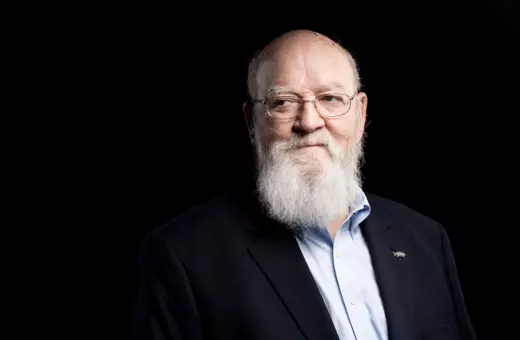As we're sobering up from the end-of-year celebrations, it's time to ask: what should we reflect on, and hope for, in 2018? Can we do anything about it? Philosophers Julian Baggini and Barry Smith, gender theorist Jack Halberstam, psychiatrist David Nutt, astrophysicist Liv Boeree, Times columnist Philip Collins and literary critic Stanley Fish speak about the biggest challenges we face in 2018 and how we could overcome them.

Jack Halberstam, Author of GaGa Feminism and Professor of English and Gender Studies at University of Columbia
___
"I hope that we can change everything. And if we cannot, I hope everything can change us."
___
The short answer to the question “What should you worry about?” is: everything. The long answer is also everything. That’s the bad news. The good news?
Well, the good news is that under the intense pressure of a cascading series of crises - political, environmental, social and economic - we are being forced to think beyond the usual liberal language of improvement and progress. We are now far from being societies for whom cliches like “it gets better” have much meaning. Just seven years ago, these words, offered by journalist Dan Savage as succor to bullied gay teens in the US, launched an empowerment campaign steeped in the worst and most hackneyed languages of neoliberal repair. Youth were asked to believe that however bad their present day experiences might be, don’t worry, it can only get better.
As we have seen, it can definitely get worse. And it has. What we can see now from the vantage point of one of the worst US presidencies in history and in the face of a global shift towards right wing popularism is that to quote William Blake "Improvement makes strait roads, but the crooked roads without Improvement, are roads of Genius.” Which leads to my few hopes for the coming year - I hope we can find these crooked roads without improvement and follow their twisty routes to more original forms of protest and political action. I hope we can stop parsing Trump’s every word and start to think beyond the two party system. I hope we can find the right balance between punishing men who have clearly abused their positions of power and used them to harass women, and instituting new systems of policing in the university and elsewhere. I hope we can think beyond our narrow interests and find opportunities for solidarity and cooperation. I hope that we can change everything. And if we cannot, I hope everything can change us.

Julian Baggini, Co-founder of The Philosophers’ Magazine and author of The Ego Trick
___
"We are one innovation away from efficient battery storage that will enable us to switch entirely to renewable energy."
___
My fears are too widely shared to bear repeating. My hopes are for one or more positive global game-changer. We are one innovation away from efficient battery storage that will enable us to switch entirely to renewable energy. One global treaty could reverse the plastification of the oceans as effectively as the Montreal Protocol reversed chlorofluorocarbons' (CFC) depletion of the ozone layer. It's hard to be optimistic and right to be sceptical, but we have to resist fatalism and cynicism.

Liv Boeree, Poker player, astrophysicist and TV presenter
___
"I hope we all learn to question ourselves a bit more before we act."
___
My main hope for 2018 is that careful deliberation using evidence and reason becomes cool again! I've noticed a worrying trend of emotional, knee-jerk decision-making, especially in some highly influential public figures.















Join the conversation